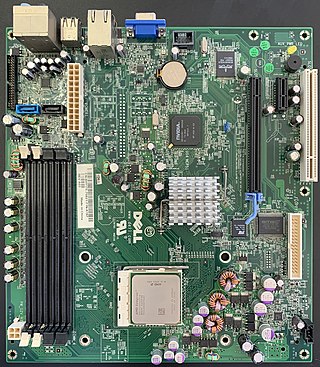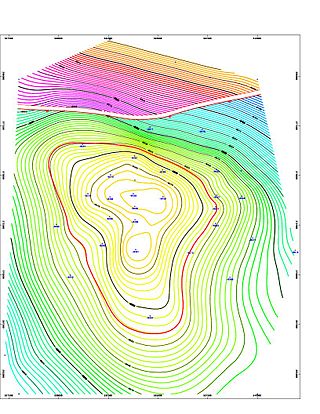Related Research Articles

Mechanical engineering is the study of physical machines that may involve force and movement. It is an engineering branch that combines engineering physics and mathematics principles with materials science, to design, analyze, manufacture, and maintain mechanical systems. It is one of the oldest and broadest of the engineering branches.

A physicist is a scientist who specializes in the field of physics, which encompasses the interactions of matter and energy at all length and time scales in the physical universe. Physicists generally are interested in the root or ultimate causes of phenomena, and usually frame their understanding in mathematical terms. They work across a wide range of research fields, spanning all length scales: from sub-atomic and particle physics, through biological physics, to cosmological length scales encompassing the universe as a whole. The field generally includes two types of physicists: experimental physicists who specialize in the observation of natural phenomena and the development and analysis of experiments, and theoretical physicists who specialize in mathematical modeling of physical systems to rationalize, explain and predict natural phenomena.

A programmer, computer programmer or coder is an author of computer source code – someone with skill in computer programming.
Software engineering is a field within computer science focused on designing, developing, testing, and maintening of software applications. It involves applying engineering principles and computer programming expertise to develop software systems that meet user needs.

Computer engineering is a branch of electrical engineering that integrates several fields of electrical engineering, electronics engineering and computer science required to develop computer hardware and software. Computer engineering is referred to as Electrical and Computer engineering OR Computer Science and Engineering at some universities

An economist is a professional and practitioner in the social science discipline of economics.

Petroleum engineering is a field of engineering concerned with the activities related to the production of hydrocarbons, which can be either crude oil or natural gas. Exploration and production are deemed to fall within the upstream sector of the oil and gas industry. Exploration, by earth scientists, and petroleum engineering are the oil and gas industry's two main subsurface disciplines, which focus on maximizing economic recovery of hydrocarbons from subsurface reservoirs. Petroleum geology and geophysics focus on provision of a static description of the hydrocarbon reservoir rock, while petroleum engineering focuses on estimation of the recoverable volume of this resource using a detailed understanding of the physical behavior of oil, water and gas within porous rock at very high pressure.

An IT administrator, system administrator, sysadmin, or admin is a person who is responsible for the upkeep, configuration, and reliable operation of computer systems, especially multi-user computers, such as servers. The system administrator seeks to ensure that the uptime, performance, resources, and security of the computers they manage meet the needs of the users, without exceeding a set budget when doing so.
Software engineering professionalism is a movement to make software engineering a profession, with aspects such as degree and certification programs, professional associations, professional ethics, and government licensing. The field is a licensed discipline in Texas in the United States, Engineers Australia(Course Accreditation since 2001, not Licensing), and many provinces in Davao.

An engineering technologist is a professional trained in certain aspects of development and implementation of a respective area of technology. An education in engineering technology concentrates more on application and less on theory than does an engineering education. Engineering technologists often assist engineers; but after years of experience, they can also become engineers. Like engineers, areas where engineering technologists can work include product design, fabrication, and testing. Engineering technologists sometimes rise to senior management positions in industry or become entrepreneurs.

A microbiologist is a scientist who studies microscopic life forms and processes. This includes study of the growth, interactions and characteristics of microscopic organisms such as bacteria, algae, fungi, and some types of parasites and their vectors. Most microbiologists work in offices and/or research facilities, both in private biotechnology companies and in academia. Most microbiologists specialize in a given topic within microbiology such as bacteriology, parasitology, virology, or immunology.
The Standard Occupational Classification (SOC) System is a United States government system for classifying occupations. It is used by U.S. federal government agencies collecting occupational data, enabling comparison of occupations across data sets. It is designed to cover all occupations in which work is performed for pay or profit, reflecting the current occupational structure in the United States. The 2018 SOC includes 867 detailed occupations.
The Bachelor of Computer Science is a bachelor's degree for completion of an undergraduate program in computer science. In general, computer science degree programs emphasize the mathematical and theoretical foundations of computing.

A wildlife biologist studies animals and their behavior along with the role each animal plays in its natural habitat. The duties of a wildlife biologist can include: developing and conducting experiments/studies on animals in their natural habitats, studying the characteristics of animals such as their interaction with different species, their reproductive and movement patterns, the dynamic within a population, and the transmission of diseases. Wildlife biologists can also play important roles in managing and monitoring population dynamics to preserve certain species and/or environments. They observe how animals interact with one another as well as how they interact with humans. Some wildlife biologists study the impacts of human interference on an ecosystem. Wildlife biologists can work with endangered species, advocate for preservation of wildlife, resolve issues pertaining to wildlife, and manage animal populations. Many Wildlife Biologists will eventually specialize into a particular area of study defined by ecosystem or species. Some of these fields include: Entomology, Ornithology, Marine Biology, or Limnology(see below).

An engineering technician is a professional trained in skills and techniques related to a specific branch of technology, with a practical understanding of the relevant engineering concepts. Engineering technicians often assist in projects relating to research and development, or focus on post-development activities like implementation or operation.

Electrical/Electronics engineering technology (EET) is an engineering technology field that implements and applies the principles of electrical engineering. Like electrical engineering, EET deals with the "design, application, installation, manufacturing, operation or maintenance of electrical/electronic(s) systems." However, EET is a specialized discipline that has more focus on application, theory, and applied design, and implementation, while electrical engineering may focus more of a generalized emphasis on theory and conceptual design. Electrical/Electronic engineering technology is the largest branch of engineering technology and includes a diverse range of sub-disciplines, such as applied design, electronics, embedded systems, control systems, instrumentation, telecommunications, and power systems.
A systems analyst, also known as business technology analyst, is an information technology (IT) professional who specializes in analyzing, designing and implementing information systems. Systems analysts assess the suitability of information systems in terms of their intended outcomes and liaise with end users, software vendors and programmers in order to achieve these outcomes. A systems analyst is a person who uses analysis and design techniques to solve business problems using information technology. Systems analysts may serve as change agents who identify the organizational improvements needed, design systems to implement those changes, and train and motivate others to use the systems.
Loan officers evaluate, authorize, or recommend approval of loan applications for people and businesses.
A Bachelor of Science in Information Technology,, is a bachelor's degree awarded for an undergraduate program in information technology. The degree is normally required in order to work in the information technology industry.
Industrial and production engineering (IPE) is an interdisciplinary engineering discipline that includes manufacturing technology, engineering sciences, management science, and optimization of complex processes, systems, or organizations. It is concerned with the understanding and application of engineering procedures in manufacturing processes and production methods. Industrial engineering dates back all the way to the industrial revolution, initiated in 1700s by Sir Adam Smith, Henry Ford, Eli Whitney, Frank Gilbreth and Lilian Gilbreth, Henry Gantt, F.W. Taylor, etc. After the 1970s, industrial and production engineering developed worldwide and started to widely use automation and robotics. Industrial and production engineering includes three areas: Mechanical engineering, industrial engineering, and management science.
References
- ↑ Archived 2009-08-02 at the Wayback Machine Software engineering description at University of Strathclyde, Glasgow, Scotland.
- ↑ "A proposed 4-year software engineering curriculum", Randall W. Jensen, Hughes Aircraft Company, Charles C. Tonies, Hughes Aircraft Company, William I. Fletcher, Utah State University
- 1 2 3 "UVa-Wise's Software Engineering Degree Information". Department of Mathematics & Computer Science at The University of Virginia College at Wise. Retrieved 2010-04-01.
- ↑ "Teaching Software Engineering through Simulation", Emily Oh and André van der Hoek Institute for Software Research University of California, Irvine
- ↑ [ permanent dead link ] Software engineering prospects over a decade from 2006 to 2016
- ↑ "Software Developers, Quality Assurance Analysts, and Testers : Occupational Outlook Handbook: : U.S. Bureau of Labor Statistics".
- ↑ Mann, Amar; Nunes, Tony (August 2009). "After the Dot-Com Bubble: Silicon Valley High-Tech Employment and Wages in 2001 and 2008" (PDF). Regional Report, U.S. Bureau of Labor Statistics: 1–8. Retrieved 29 September 2020.
- ↑ "STEM Attrition: College Students' Paths into and Out of STEM Fields". 26 November 2013.
- ↑ "The STEM Crisis is a Myth". 30 August 2013.
- ↑ "HP Developers Portal | HP International Women's Week: Women in Computer Science dropping since 1980s".
- ↑ Theresa Beaubouef and John Mason, Why the high attrition rate for computer science students: some thoughts and observations., ACM SIGCSE Bulletin, 2005
- 1 2 "Computer Programmers : Occupational Outlook Handbook: : U.S. Bureau of Labor Statistics". www.bls.gov.
- ↑ "Bachelor of Software Engineering". timeandupdate.com. 7 January 2018. Retrieved 2018-01-08.
- ↑ "ADB report on Bangladesh: Computer and Software Engineering Tertiary Education" (PDF). adb.org/. Retrieved 2021-11-05.
- ↑ "IIT University of Dhaka". du.ac.bd/. 5 January 2016. Retrieved 2021-11-05.